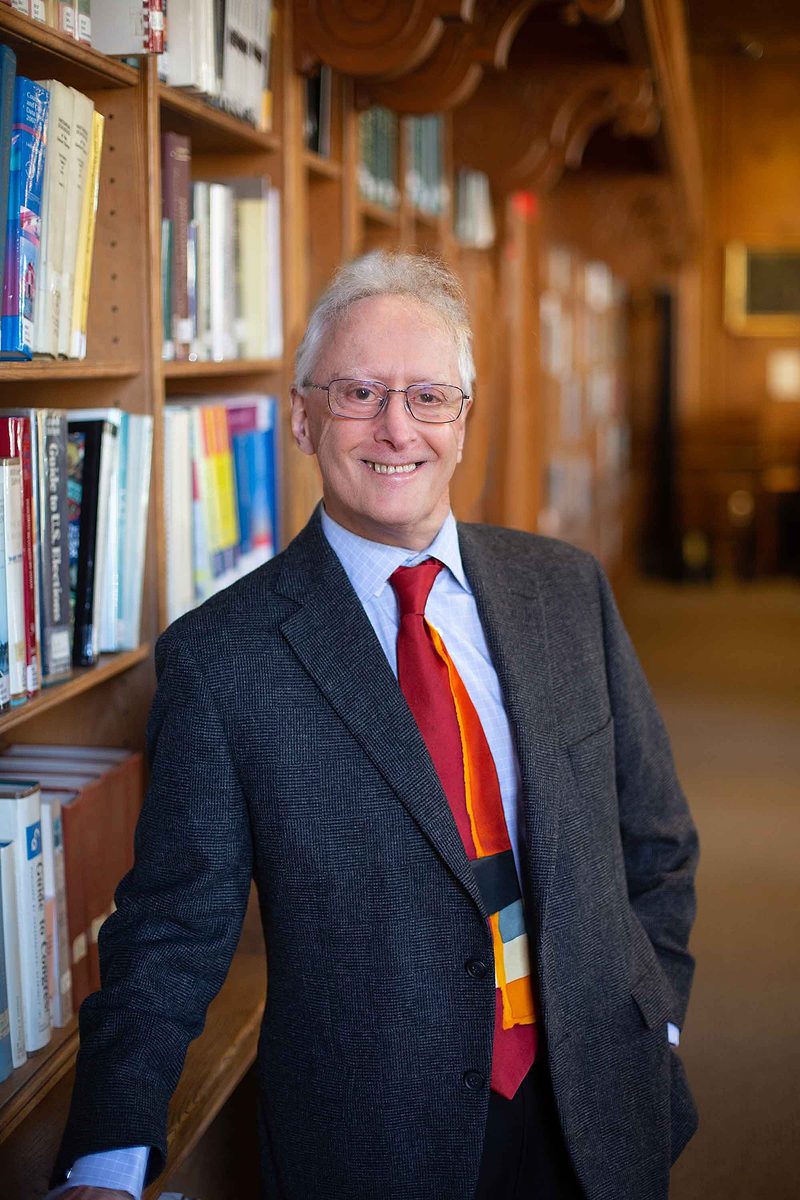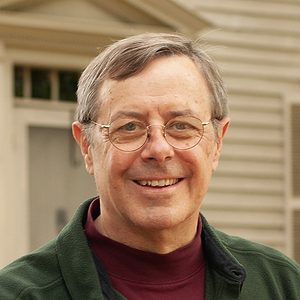“Why Concord?” asks historian Robert A. Gross in the preface to his new book, The Transcendentalists and Their World (Farrar, Straus and Giroux, 2021). One drizzly October afternoon I asked him the same question about his own choice to devote much of his career to examining this singular dot on the map of New England.
“I came to study Concord not because I was interested in the local history,” he said. “I was interested in the local history as it helped to tell a national history. And I’ve come to love living here. I love the fact that I’m telling a large story with broad implications in one place, a place that is not a backwater, not on the margins.”
He first came here in the 1970s, full of what he calls a “New Left-y” zeal to look past history’s parade of powerful white men and examine the lives of ordinary workers, women, enslaved people, and indigenous people. America was about to celebrate the bicentennial of the Declaration of Independence, so Prof. Gross applied this approach to what he thought would be a “quickie book” about Concord’s role in the outbreak of war on April 19, 1775. That book became The Minutemen and Their World, which won him the 1977 Bancroft Prize in American History.

His new book takes on another rebellion—the intellectual revolution of the 1830s and 40s, closely associated with Concord authors like Ralph Waldo Emerson and Henry David Thoreau. We often assume that the upstarts who resisted the old ways of church, school, and business were simply following a trail blazed by their grandfathers at the North Bridge. But as Prof. Gross reveals, theirs was a very different kind of revolution.
The minutemen “fought for collective ends,” he writes. They “founded a republic on the duty of citizens to serve the public good.” They guarded a Puritan heritage that emphasized “the interdependence of individuals and families within a common way of life.”
The Transcendentalists, on the other hand, were what he calls “cheerleaders for individual growth, education, and development” rather than the collective good. The Transcendentalists didn’t invent the primacy of the individual, but they offered a new way to understand the political, religious, and economic forces that were already undermining the communal coziness of colonial society.
In 1840, Massachusetts abolished the requirement for all able-bodied white adult males to train with the local militia, eliminating one important form of common participation.
Moral crusaders—many of them evangelical Congregationalist ministers—denounced the strong drink that was enjoyed in taverns and shops, driving locals away from the very places where community bonds were forged and news was shared.
The early 19th century saw the rise of banks in the U.S., and more cash in circulation. More cash meant farmers could pay for goods and services, where before they had “changed works,” e.g., lent a neighbor a pair of oxen in exchange for help with the harvest.
In 1833, Massachusetts voted in favor of disestablishment, ending the colonial-era mandate that every town collect taxes to support a church and a minister. Whether and where to worship was now a matter of personal choice, not of community solidarity.
Ralph Waldo Emerson saw all this, and in his essay “The Present Age” he declared, “incessant change is the condition of life and mind.” He asked his readers to envision religion not as a building, a list of rules, or even a group of people, but as the spirit of divinity that is within you. His prescription for an unsettled world was to look inward for meaning instead of turning to society for guidance.
Writing The Transcendentalists and Their World drew Prof. Gross closer to Emerson than he had expected. Like many historians, he had thought of the Sage of Concord as dispensing wisdom from a comfortable place of privilege and wealth. And he was deeply troubled by the years it took Waldo to align himself with the antislavery movement.
As he researched more deeply, Prof. Gross says, he grew more sympathetic toward his subject. He acknowledges that Emerson was too slow coming to the aid of the enslaved as he struggled to overcome white racism and a misplaced faith in the power of self-reform to improve society. He was put off by the abolitionists’ self-righteous tone and their growth into a large, faceless bureaucracy.
Emerson didn’t like to think quantitatively, but he lived in an era when society was increasingly dependent on big numbers to make big decisions. Between the 1830s and the 1850s, the population of Boston nearly doubled, to over 100,000. While Transcendentalism emphasizes the uniqueness of each individual, statistical methods have a democratizing effect. “Every one is a unit,” says Gross, “regardless of rank or order.”
Why are we talking about statistics in a story about Transcendentalism? Because that’s how we learn about the people who didn’t write books or give lectures, but whose lives absolutely mattered. Statistics are an indispensable tool for social historians like Prof. Gross. And right here in Concord, Lemuel Shattuck pioneered the use of public data to document history in his 1835 History of Concord.
Prof. Gross calls Shattuck “my progenitor,” devoted to unearthing every fact and to preserving original documents. But where Shattuck insisted that facts equaled truth, Gross believes it is the questions we put to the facts that point us to the truth. (Shattuck was not above scoring a cheap laugh at the expense of the Transcendentalists. In his 1849-50 public health survey of Massachusetts, he wrote, “What we are proposing is entirely practical; it is no transcendentalism.”)
For all its statistical underpinnings, The Transcendentalists and Their World is, first and foremost, a story of people. We meet familiar figures—authors, clergymen, politicians—but Prof. Gross employs the same lively detail to introduce us to their unsung neighbors and relatives. (My personal favorite is Thoreau’s uncle Charley Dunbar, an eccentric bachelor noted for entertaining taverngoers with card tricks and athletic feats.)
The Transcendentalists and Their World takes us back to the roots of Discover Concord magazine. Even before Nathaniel Hawthorne popularized Concord as a bucolic retreat in Mosses from an Old Manse (1846), the town consciously presented itself as the quintessential New England village, just a short train trip away from Boston, or as Gross puts it, “a quiet, pastoral place, fit for poets and philosophers.” Even as they reckoned with a society in change, the Transcendentalists were happy to affirm this assessment.


